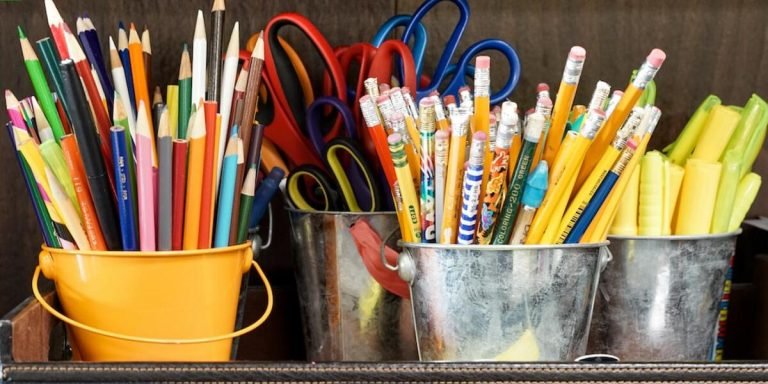Special Education Major: Navigating the Path for a Rewarding Career in Teaching
Stepping into the world of education as a special education major opens up an avenue for motivating and rewarding experiences. This profession allows you to make significant contributions in shaping a child’s life, especially those with unique learning needs. It is an opportunity that demands dedication but brings unparalleled satisfaction in return.
In this dynamic field where each day proposes new challenges and equally enriching solutions, it’s crucial to equip yourself with all-encompassing resources and support systems. Understanding what these are can help streamline your journey towards becoming successful educators serving children who learn differently, thereby affirmatively impacting their lives forever.
Did you know?
Interestingly, according to the U.S. Bureau of Labor Statistics, employment opportunities for special education teachers are projected to grow 8% from 2020 to 2030 – a rate faster than the average for all occupations.
Understanding the Importance of Specialized Resources in Special Education
The field of special education has significantly evolved in recent years, with the integration of technology bringing upon remarkable changes. For any special education major today, understanding and leveraging specialized resources is paramount for successful teaching outcomes. These advanced tools not only provide personalized experiences to each student but also go a long way in aiding their knowledge absorption processes.
In this digital age, a variety of software applications and educational platforms have been developed specifically for learners who require additional support due to physical limitations or learning disabilities. From smartboards that enable visual stimuli-based learning to assistive speech devices fostering communication skills – these technological advancements are transforming classrooms into dynamic landscapes where diversity doesn’t become an obstacle but instead enriches the overall process.
Identifying Comprehensive Tools for Educators
Educators specializing in special education, sometimes referred to as a “special education major,” have the challenging and rewarding task of teaching children with varied learning needs. These range from cognitive disabilities, autism spectrum disorders, emotional disturbances, and physical impairments. Understanding each child’s unique educational demands is essential for these educators.
One powerful method to meet this challenge is by identifying comprehensive tools specifically tailored for special educators’ use. The advent of technology integration in education has been revolutionary especially in 2023 – it has transformed traditional classroom settings into dynamic learning environments where students are more engaged and empowered.
For instance, assistive technologies such as speech-to-text software can be life-altering for a student struggling with writing due to dysgraphia or coordinating motor skills because they play an instrumental role without completely taking over the process.
Similarly digital platforms like virtual classrooms give visually impaired learners access through high-contrast visuals or interactive voice response systems which help them navigate course content effortlessly ensuring they do not lag behind their peers.
Navigating Support Systems for Students with Disabilities
For parents and educators, understanding the world of special education can be a monumental challenge. The realm is complex, often appearing to be a maze that’s difficult to navigate without adequate knowledge or resources. But it becomes infinitely more manageable when you’re armed with specialized tools designed for this specific purpose.
One such critical tool concerns becoming a special education major. This focus allows individuals not only to comprehend the unique aspects inherent in teaching students with disabilities but also recognize how vital support systems are in facilitating successful learning outcomes.
Let’s delve further into these support systems within the context of technology integration in education – an extraordinarily beneficial aspect we’ve witnessed first-hand during our ongoing transitions towards digital empowerment as part of 2023’s evolving educational landscape.
1) Assistive Technology: From text-to-speech software aiding students who have reading difficulties, screen magnification tools helping visually impaired learners, there are numerous forms of assistive tech at their disposal today. Such devices help children overcome barriers presented by their disability while enhancing self-confidence and creating more inclusive classrooms.
3) Virtual Reality (VR): VR isn’t merely about gaming; immersive virtual realities provide hands-on experiences compellingly simulating real-world situations fostering better comprehension among challenged learners.
Tailoring Learning Environments for a Special Education Major
In the realm of special education, technology has progressively become an essential tool for shaping effective learning environments. A Special Education Major will undoubtedly appreciate this shift towards a more customized and interactive teaching methodology in 2023. With diverse software and applications available today, educators have unparalleled resources to accommodate students’ unique learning needs.
The integration of technology into education creates opportunities for tailoring instructions based on each student’s strength while simultaneously addressing their area of challenge. Artificial intelligence, virtual reality tools, adaptive educational games – all these technological breakthroughs can transform how lessons are imparted with pedagogical approaches that would suit best a Special Education Major.
Furthermore, there is a bounty of online platforms offering comprehensive resources relevant to one navigating the field of special education. These assets come in forms like blogs written by experienced professionals sharing strategies or webinars discussing contemporary challenges along with proposed resolutions in delivering specialized instruction effectively.
Final thoughts pivot around support networks existing within digital spaces dedicated to those aspiring or practicing as Special Educators as they journey through their profession aiding individuals who require tailor-made academic assistance — from parents seeking tips about reinforcing classroom teachings at home to teachers interested in exchanging methodologies proven successful over time.
Designing Inclusive Classroom Strategies
Fostering an inclusive learning environment is not only a challenge but also a responsibility for any special education major. So, let’s dive into some strategies that are uniquely tailored to accommodate and enhance the educational journey of every student.
Firstly, it’s important to understand each child individually. As educators specializing in special education, knowledge about students’ strengths and weaknesses can pave the way forward. The aim should be on capitalizing on their strengths while offering support where they struggle.
Secondly, adaptability is key when designing classroom strategies. This stretches from tailoring curriculum plans to adopting flexible teaching styles based on individual learning requirements of each student in your class.
In today’s digital world technology acts as an empowering tool at our disposal enhancing inclusivity within classrooms like never before; especially keeping 2023 in mind . Assistive technologies such as text-to-speech converters or visual aids have proven monumental in creating accessible environments for learners with different abilities, thus signifying the integration of technology into modern-day pedagogical practices being more relevant than ever before.
Next comes communication – clear, consistent interaction between teachers and pupils facilitates easier understanding & better connectivity making them feel seen & heard.
Lastly yet importantly , collaboration becomes essential among peers along with parents/caregivers involvement which stimulates overall growth providing mutual respect among other vital benefits .
Leveraging Assistive Technology to Enhance Learning
Technology acts as a dynamic enabler in childhood education. When used strategically, it provides numerous benefits for special education students by customizing learning environments to meet their individual needs. Here’s how assistive technology enhances learning:
Assistive tech tools are not merely fancy gadgets; they’re strategic solutions designed with inclusivity in mind. They play an instrumental role in leveling the educational playing field, enabling learners with disabilities or learning difficulties to engage fully and experience academic success.
High-interest areas where these technologies have proven particularly beneficial include reading comprehension and writing abilities improvement – two crucial skills necessary for any learner’s development and progress but often challenging hurdles for students pursuing a special education major.
Audio books, text-to-speech software programs like Kurzweil 3000 or Read & Write Gold offer hope when conventional methods fall short. These innovative digital resources help overcome literacy challenges by delivering content audibly — making complex texts manageable even when traditional reading proves difficult.
For writing tasks that typically demand high levels of manual dexterity or cognitive processing power – both potential stumbling blocks on the path towards academic excellence—word prediction software provides invaluable support.
Programs such as Co:Writer Solo provide word suggestions during typing activity based on grammar rules and topical relevance which aids sentence construction immensely while indirectly providing instruction about correct language usage too!
Collaborative Efforts and Community Engagement in Special Education
The pursuit of a special education major in this technologically advanced era requires an understanding of the importance of collaborative efforts and community engagement. The integration of technology within modern pedagogy has brought about significant changes, especially for students requiring special educational resources and support.
Building bridges between educators, parents, therapists, support workers and the broader community forms an ecosystem that aids in addressing various learning differences more effectively. For instance, regular interaction through virtual meetings can foster connections with school staff or allow access to online therapy sessions which wouldn’t be possible otherwise due to geographical or time constraints.
Moreover, myriad digital tools are available today that encourage interactive problem-solving endeavours amongst students themselves; thus promoting social skills while ensuring they meet their individual learning objectives simultaneously. An engaged community acts not just as observers but rather catalysts who aid in nurturing inclusivity within classrooms thereby reshaping ‘special education’ from being a service provided by few to responsibility shared by all.
Fostering Partnerships Between Schools, Families, and Service Providers
In today’s ever-evolving educational landscape, fostering effective partnerships between schools, families, and service providers isn’t just a recommendation—it’s imperative. Students pursuing a special education major understand how collaborative efforts shape the success of their programs. These collaborations can break down barriers and open up new possibilities for students with diverse learning needs.
Let’s now look at three key areas where collaboration plays an integral role:
Schools are microcosms of society—richly diverse in culture, abilities, and personal experiences; building inclusive school cultures is no small task but one that special educators tackle head-on each day. They strive to create environments where all children feel valued irrespective of their unique qualities or challenges they face.
Families play pivotal roles in advocating for suitable resources necessary for the development of their child within the realm of Special Education Resources and Support arena in 2023—in fact always have been instrumental to this process! Open communication channels allow parents to share valuable information about their child which aids teachers devise custom strategies aimed directly toward improving student outcomes.
Local communities offer plethora services targeted towards supporting individuals needing specialized support – be it therapy sessions or vocational training organizations – creating connections with these entities provides additional avenues helping students reach their potential.
Promoting Advocacy and Awareness Initiatives
Promoting advocacy and awareness initiatives in special education is a critical touchpoint within the realm of childhood education. As parents, caregivers or educators, it’s imperative to ensure that every child receives the equal opportunity to learn and grow.
In 2023, being a special education major involves not only classroom teaching but also community engagement efforts aimed at nurturing inclusive environments for children with unique learning needs. It requires collaborative partnerships between schools, families, support groups and local communities – all driving towards enhancing educational outcomes for these students.
Technology integration plays an essential part here. The advent of assistive technology has opened up vast possibilities by creating accessible and personalized learning platforms catering specifically to each individual student’s requirements. Specialized computer programs can help improve communication skills while interactive apps make lessons more engaging thereby promoting social interaction amongst peers.
Conclusion
Choosing a career as a special education major is not just about earning a degree, it’s about touching lives and making an impact. It may be challenging but remember that with the right attitude and sufficient preparation, you can navigate towards this rewarding path without skipping any important steps.
We hope we’ve enlightened your journey in becoming an exceptional educator for children who need extra care. Don’t stop here; feel free to browse around our website where we have compiled more helpful resources on childhood education and dedicated support spaces for both parents and educators alike! Your ambition combined with our wealth of knowledge will surely make all the difference in these young learners’ lives.







